Wilderness Therapy Reviews From Our Students & Families
At Trails Carolina we care about families. We care about our students. We are proud of our clinically sophisticated and time-tested program that results in changes that last a lifetime.
We are a leading wilderness therapy program for troubled teens. Since our founding in 2008, we have helped thousands of families reconnect, heal, and thrive. Keep scrolling for testimonials about our wilderness program from Trails Carolina alumni students who have found long-lasting success since attending our program.
Whether you're looking for a program for your troubled teen or simply want to learn more about wilderness therapy, our Admissions Team is available to answer your questions.
Please see what our alumni families are saying about their experience:
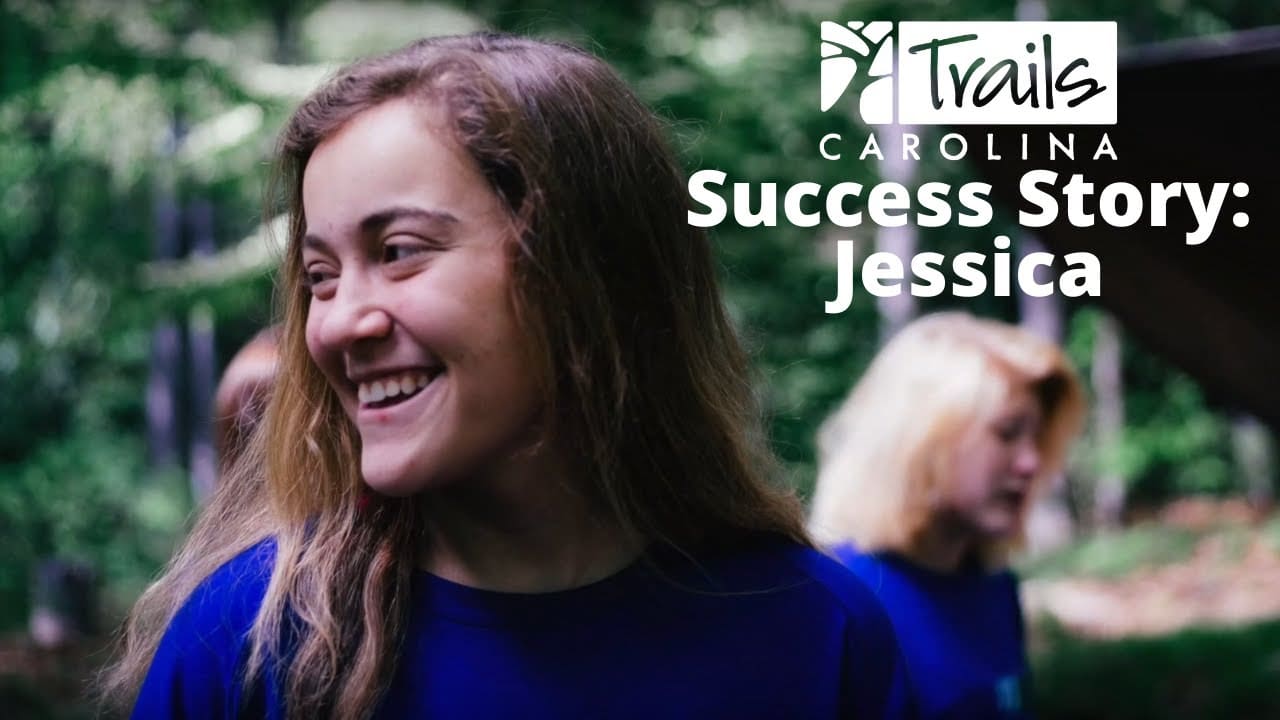
Jessica's Story
Jessica is a 15 year old girl from Dallas, Texas. She came to Trails Carolina in the Spring of 2015.
Some of the struggles that Jessica was facing before she came to Trails Carolina were depression, anxiety, and unhealthy relationships. Reflecting back, Jessica states, “I wasn’t appreciating myself like I should be.” Through her journey at Trails, Jessica has learned that it’s alright to make mistakes because those mistakes don’t define you.
“The staff, they really care. It’s just a really supportive place to be.”
Berto's Story
Berto is a 13 year old who came to Trails Carolina in the Spring of 2015 because he was struggling with anger and respect towards his parents.
Elaborating further, Berto commented, “I had some anger issues. I wasn’t communicating with my family very well, I was really rude.”
Through his time at Trails, Berto has been able to grow in a wilderness setting, and help to correct some of the problems he was struggling with. “Being out in the wilderness has really helped, being away from all of my distractions at home.”
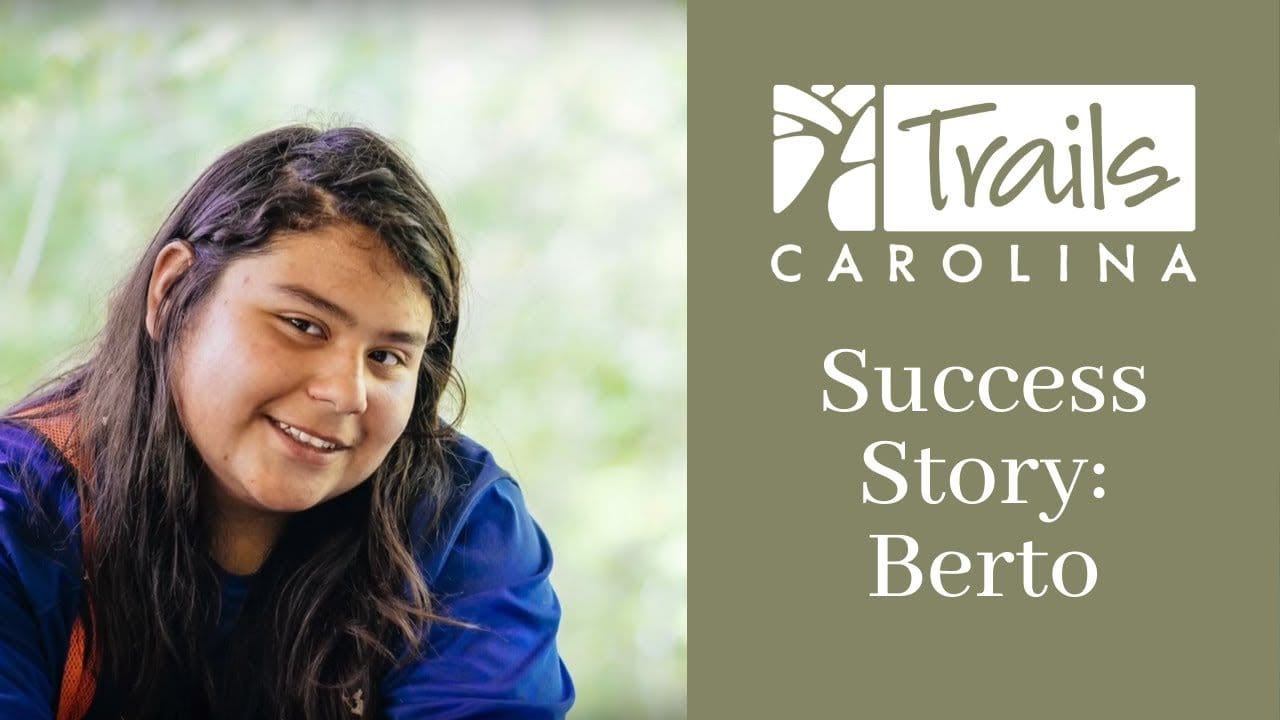
Luna's Story
Luna is a 16 year old girl who struggled with anxiety before coming to Trails Carolina.
She found the emphasis on nature at Trails to be helpful and provide peace that she didn’t get at home in the city. She was able to get to a better place through her time at the program.
“I was excited to go home and show everyone what I had learned in the program,” she reflects. While it may have been hard at times, Luna’s time at Trails Carolina was worth it. “Even if it seems rough right now, there’s a good outcome for it.”
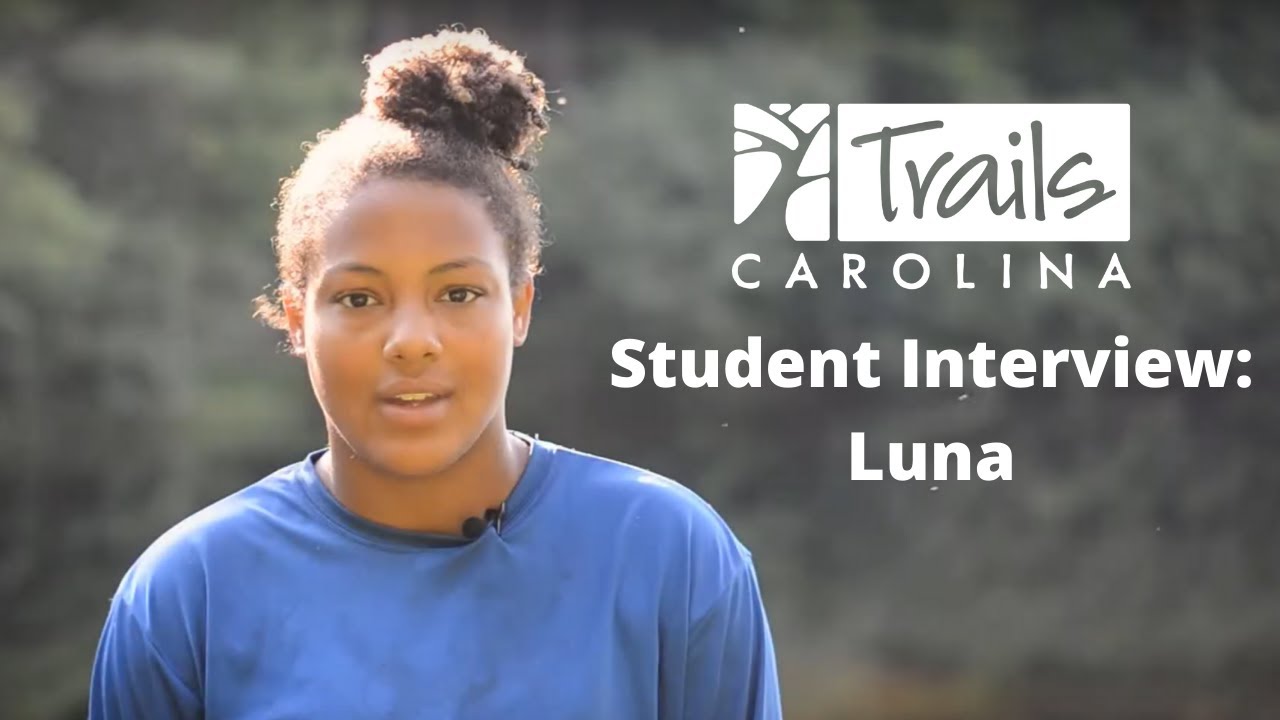
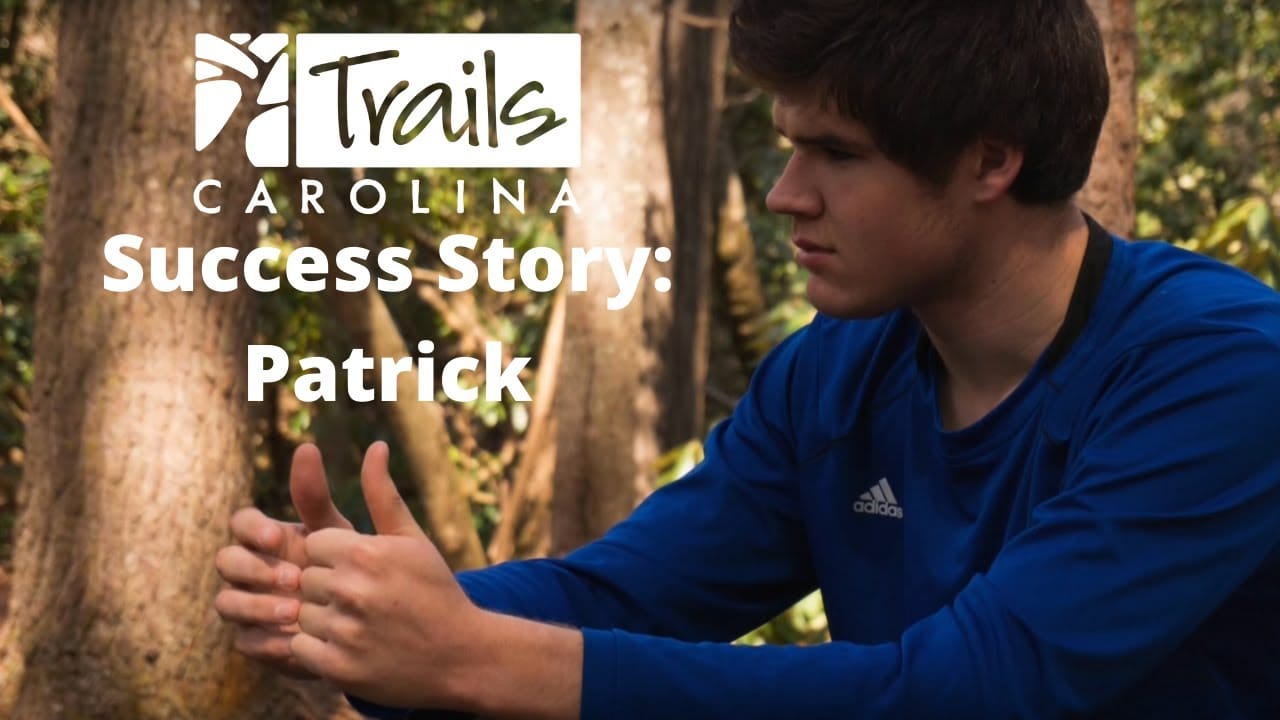
Patrick's Story
Patrick is a 17 year old boy who was using marijuana to cope with deeper underlying issues such as depression, anxiety, and insecurities.
However, since coming to Trails, he feels like he is better equipped to handle those issues with the new skills he has learned. “Trails has given me a greater mindset to accomplish my goals in the future.”
Taylor's Story
Taylor is a 14 year-old teen girl from Nashville, Tennessee who came to Trails Carolina for a variety of issues. Some areas where she was struggling included behavioral challenges with her family, inappropriate relationships with her peers, and self-harm.
Through her experiences at Trails, Taylor has been able to learn much about herself, developing self-awareness and self-efficacy. “Just because you’ve done wrong doesn’t mean you are wrong”.
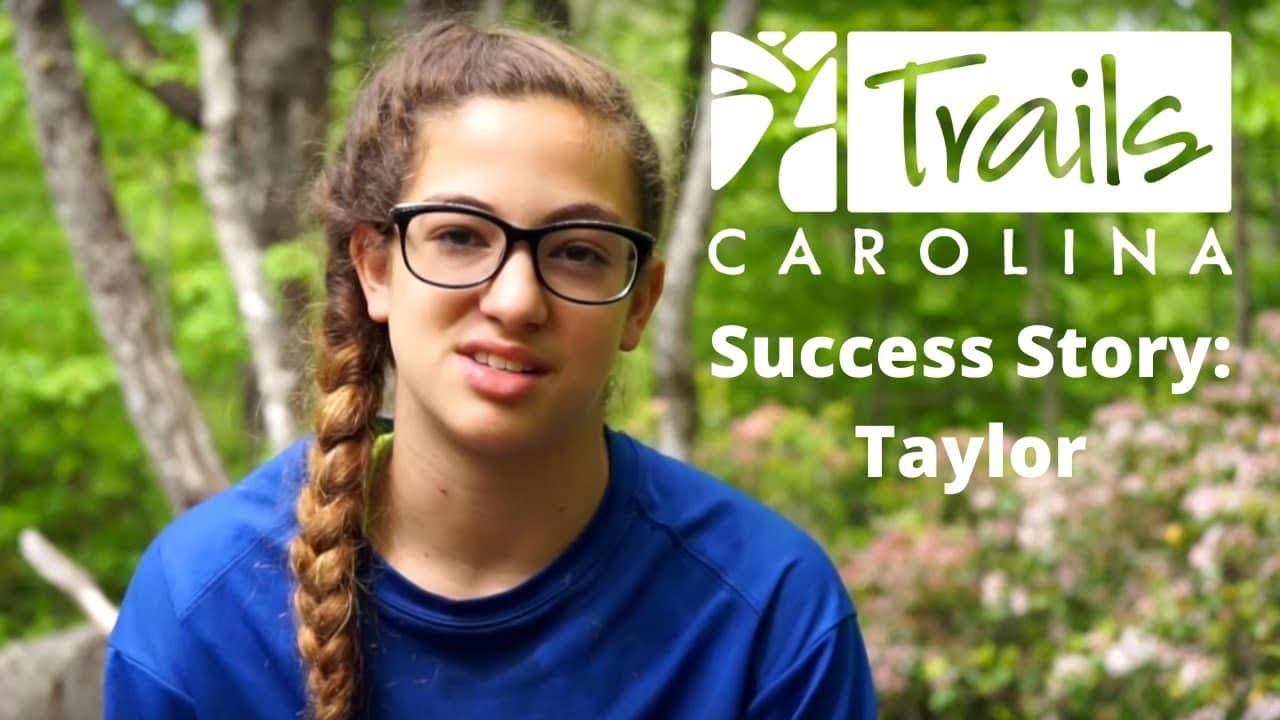
Get started today
Contact us today to learn how Trails Carolina can help your family
Trails saved my daughter’s life. Amanda is an amazing human and a brilliant therapist. I am so grateful to her, Science Steve, and the other wonderful people who could reach my daughter at a time when I could not.
Margot Lowman August 2022
Great life changing experience for our son. After becoming addicted to gaming during covid he was very depressed. At Trails he experienced the wilderness, Science Steve, learning survival skills and top notch therapy and support etc… I highly recommend! This gave our son and our family a renewed family bond full of love and excitement about his bright future.
Winnifred Wilson July 2022
Outstanding clinical work and superb staff! There’s a great culture at this company and it shows with how they engage with families/clients.
Kristin Brace June 2022
FAQs
98% Of Students Continued To Report Significantly Improved Mental Health 12 Months After Graduation
Many of our alumni report increased self-confidence, autonomy, and motivation in their lives after completing our program. In addition, they often form lasting friendships and develop a greater appreciation for nature and the outdoors, which can help strengthen healthy relationships within families.
We are results-driven at Trails Carolina, and our outcome data speaks for itself.
One year after graduation:
-
86% of students showed improvement in anxiety symptoms
-
93% of students showed improvement in depression symptoms
-
96% of students reported experiencing a decrease in substance use
-
98% of students reported experiencing a decrease in suicidal thoughts
-
98% of students reported experiencing a decrease in aggressive behaviors
-
87% of students felt excited about school.
The success rate of wilderness therapy can vary depending on a variety of factors, including the specific program, the individual participants, and the goals of the therapy. The research that has been conducted to assess the success rate of wilderness therapy has shown that many wilderness programs are effective in helping youth and young adults overcome a variety of challenges.
-
A 2016 study published in the Journal of Child and Family Studies, A Meta-analysis of Wilderness Therapy Outcomes for Private Pay Clients, found that wilderness therapy effectively reduced anxiety, depression, and externalizing behaviors in adolescents.
-
Additionally, in The Impact of Wilderness Therapy: Utilizing an Integrated Care Approach, a 2015 study published in the Journal of Experiential Education, it was found that wilderness therapy had "significant improvements in [youth] mental health functioning."
It's worth noting that success in wilderness therapy is not always easy to quantify, as the goals of the therapy may vary from individual to individual.
Some participants may experience immediate and significant improvements in their mental health and well-being, while others may require ongoing support and therapy after completing the program.
That being said, compared to other types of therapeutic programming, wilderness therapy is more likely to result in longer-lasting and more sustainable success.
Parents want their kids to be happy, healthy, and resilient, and when their child is struggling, they will go to the ends of the Earth to find the support their child needs.
Many parents choose come to our program after trying out other therapeutic programs that haven't made enough of a sustainable impact on their child's wellness. Wilderness therapy is a way to provide their kids with a safe, supportive environment where they can work through personal, emotional, and behavioral challenges while developing important life skills and strategies for long-term success.
Parents may send their kids to wilderness therapy for a variety of reasons, but some of the most common reasons include:
-
Behavior problems: Parents may send their kids to wilderness therapy if they are struggling with behavioral issues such as defiance, aggression, or substance abuse.
-
Mental health issues: Kids with mental health issues such as depression, anxiety, or trauma may benefit from wilderness therapy, which provides a supportive and therapeutic environment.
-
Academic struggles: Wilderness therapy programs can provide an opportunity for kids to disconnect from distractions and focus on their academic and personal goals.
-
Family conflict: Wilderness therapy can also help families work through conflict and communication issues, improving family dynamics and relationships.
-
Developmental challenges: Other parents may send their kids to wilderness therapy to help them overcome developmental challenges such as social skills deficits or executive function difficulties.
Average Daily Cost
-
Residential Treatment Centers: $400-$1000
-
Wilderness Therapy Program: $600-$1000
Learn more about the cost of wilderness therapy programs.
Average Length of Stay
-
Residential Treatment Centers: 9-12 months
-
Wilderness Therapy Program: 70-90 days
Average Success Rate
-
Residential Treatment Centers: 75-80%
-
Wilderness Therapy Program: 80-85%
Average Daily Cost
-
Therapeutic Boarding School: $400-$1000
-
Wilderness Therapy Program: $600-$1000
Learn more about the cost of wilderness therapy programs.
Average Length of Stay
-
Therapeutic Boarding School: 9-12 months
-
Wilderness Therapy Program: 70-90 days
Average Success Rate
-
Therapeutic Boarding School: 75-80%
-
Wilderness Therapy Program: 80-85%
Not at all.
A juvenile detention center is typically used as a form of punishment or incarceration for young people who have been convicted of a crime.
These facilities are usually run by the criminal justice system and have strict rules and regulations that are enforced by staff members. Young people in these centers are often isolated from their families and communities and may be subject to strict disciplinary measures.
Wilderness programs, on the other hand, are designed to provide a supportive and therapeutic environment for young people who are struggling with a range of emotional, behavioral, or mental health issues.
These programs typically involve spending time in a natural setting with safety measures in place, while participants work with an entire team of trained therapists and staff members to develop coping skills, improve communication, and address underlying issues that may be contributing to their challenges while focusing on the healing process.
A boot camp is often more focused on discipline and obedience, while wilderness therapy is focused on therapy and healing.
Boot camps are typically designed to be highly structured and controlled, with strict rules and regulations enforced by staff members.
Participants in a boot camp may be subject to physical punishments or harsh disciplinary measures if they do not comply with the rules. The goal is often to "break down" participants and rebuild them in a more disciplined and obedient form.
In stark contrast, wilderness therapy programs are designed to be supportive and therapeutic, with trained therapists and staff members working closely with participants to help them develop coping skills, improve communication, and address underlying issues.
While there may be some structure and rules in wilderness therapy programs, they are typically to keep the participants physically safe and much less harsh and rigid than those in boot camps. The focus is on personal growth and development at a wilderness program, rather than obedience and discipline.
